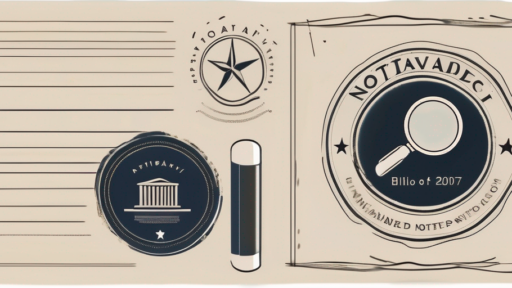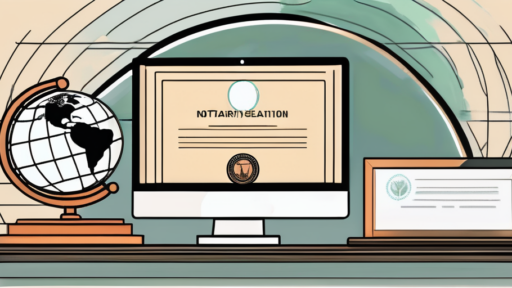Real estate deals consist of a complex combination of legal steps that are used to make sure the transfer is executed smoothly and securely. The two processes that are pivotal for these transactions are title notarization and escrow. These two procedures in themselves ensure the authenticity and the security of the deal, and at the same time, the parties also remain protected. This post will go over the nitty-gritty of notarization and escrow transactions in the property business and serve as an eye-opener to the harmonious correlation between the two, which leads to successful transactions.
Key Takeaways
Escrow Property: The core of the discussion in the present work is the mutual influence between notarization and escrow in real estate deals.
Real Estate Deal: The generic essence of the context in which notarization and escrow are performing their duty is stressed to let the reader know the situations of property transactions are rather complicated.
Notary Property: Bringing out the decisive role of notarization in the legalization and validation of property-related documents.
Understanding Notarization in Real Estate Deals
Notarization is involved, in fact, an essential stage of any real estate conclusions as it is the easiest way to make the paperwork legal and confirm it is real. After the essential documents like deeds, contracts, or agreements are notarized, they become more trustworthy. A notary public is a person who, if present,/can confirm the genuineness of the signatures on those papers and that the people present are real.
Online Notarization with BlueNotary
The internet has brought notarization to a different level where it is now done digitally; thus, it is much faster and less costly. BlueNotary is a company that is on a mission to avail remote online notarization services that are very easy and affordable and facilitate the notarization of documents online. Those who go for BlueNotary are in a position to have their documents notarized from anywhere, a convenience that spills over the whole property sale process and makes the entire process time-efficient.
BlueNotary Online Notarization
The Role of Escrow in Real Estate Deals
Understanding Escrow in the Context of Property Transactions
Escrow, as a concept, has numerous layers of meaning in the context of a property transaction but is a financial disposition at its core. Under this practice, a third party holds both the assets and the paperwork intended for the exchange of the involved parties until a certain date. The middleman, who is the escrow notary, is a fair broker in real estate contracts and ensures that neither party is wrongly deprioritized. The set process, indeed, is the best, most efficient, and transparent way to transact a business with a third party, only releasing funds upon the expiry of conditions that are preset and agreed upon.
The Interplay Between Notarization and Escrow
Building Trust Through Documentation
Trust between notarization and escrow undergirds the whole of their relationship. Notarized documents are the central element in a real estate deal as they make the entire process authentic, while on the other hand, the parties can trust the one who notarized the documents. The next thing that happens is that these papers are put in escrow, which is mutually affirmed by the buyer and the seller that the deal will be executed in agreement with the terms.
Ensuring Legal Compliance
Escrow combined with notarization can really prevent the occurrence of any fraud or illegality during the transactions. The legal firm which employs an officer who is also a notary public can play that role quite well. Such a firm has the double role of providing a notary public to the client for safeguarding the company’s interests in real estate deals and acting as a checking watchdog of the financial activities in those deals. The signing ensures that the escrow party sent to the other party is a legitimate contract and the transaction is executed properly. At the same time, verification and notarization of the documents protect the contract.
Frequently Asked Questions
Q: Can I use any notary for my real estate documents?
A: You may use any licensed notary for your real estate documents, but it is best to pick the one who has done the same transactions, as they will likely be the ones who will meet the requirements.
Q: How long does the online notarization process with BlueNotary take?
A: Although it is possible to do notarization online with BlueNotary within a relatively short time, the actual process may vary depending on the individual requirements of a particular document.
Q: What happens if there is a dispute during the escrow process?
A: In the event of a conflict, the escrow holder can act as an intermediary between both parties, and in cases where the dispute cannot be resolved, the money remains in the escrow, or it is finally settled by the court.
Q: Are there any additional fees associated with remote online notarization?
A: BlueNotary does charge a certain fee for their online notarization service. It is your responsibility to enquire about the detailed pricing system with them.
Conclusion
In conclusion, the complementary roles of notarization and escrow in real estate transactions serve as a clear-cut illustration of the significance of these operations as tools of transparency, security, and legal justification. Notarization, which prioritizes confirmation and attestation of signatures, is the first line of the defense mechanism against fraud. It is the basic supporting element for marketable property documents, creating trust among the involved parties.
Even as the real estate market changes, it will be the effective partnership of notarization and escrow that will support and reflect that change, being modified by new technologies and regulations, that will continue as the axis of these transactions. Real estate dealings are not simple, which makes the connection between these two activities a focused effort that benefits the community. Eventually, the seamless merging of notarization and escrow will only consolidate the basis of transactions in real property, which leads to trust and dependability even in a fluid environment.








